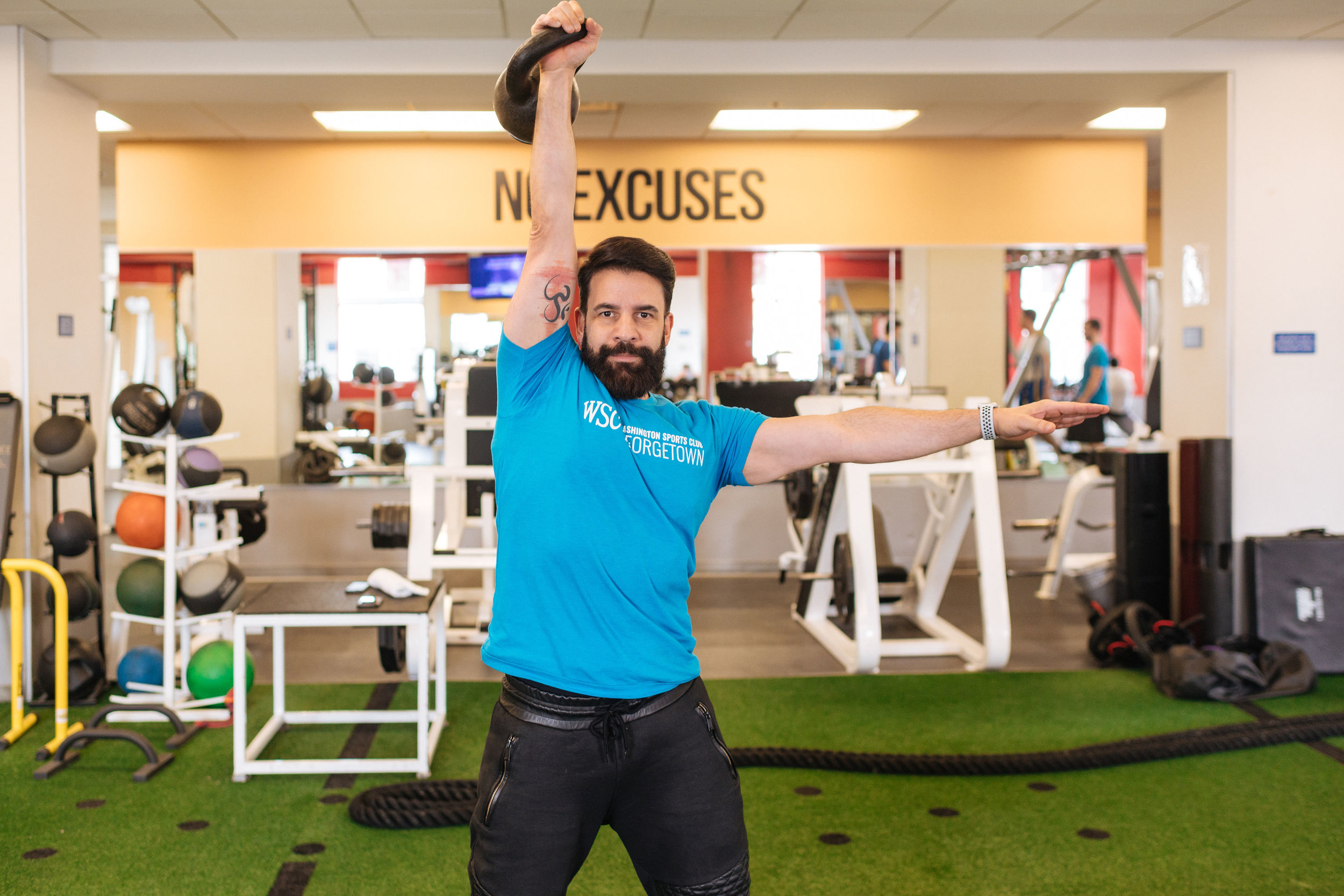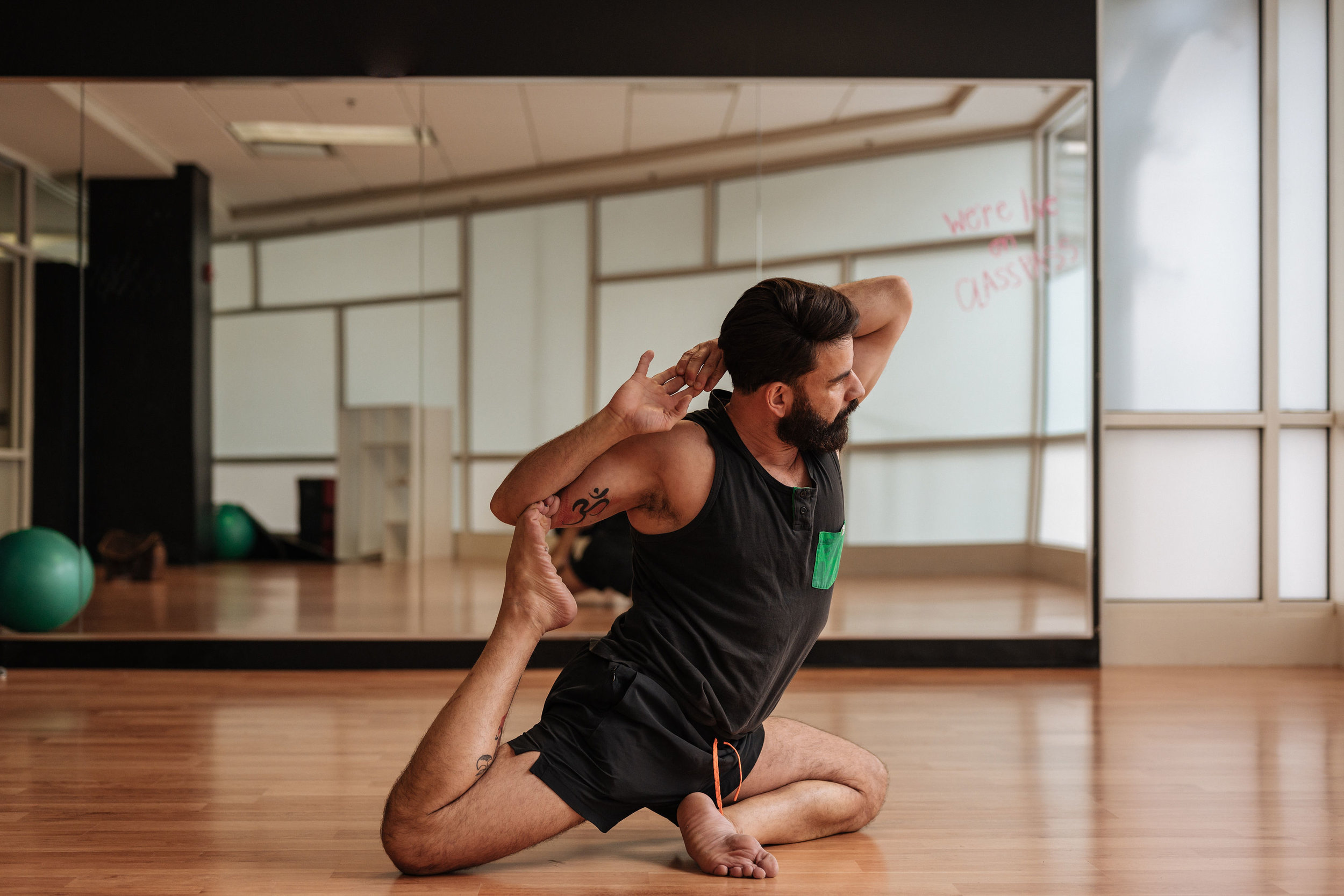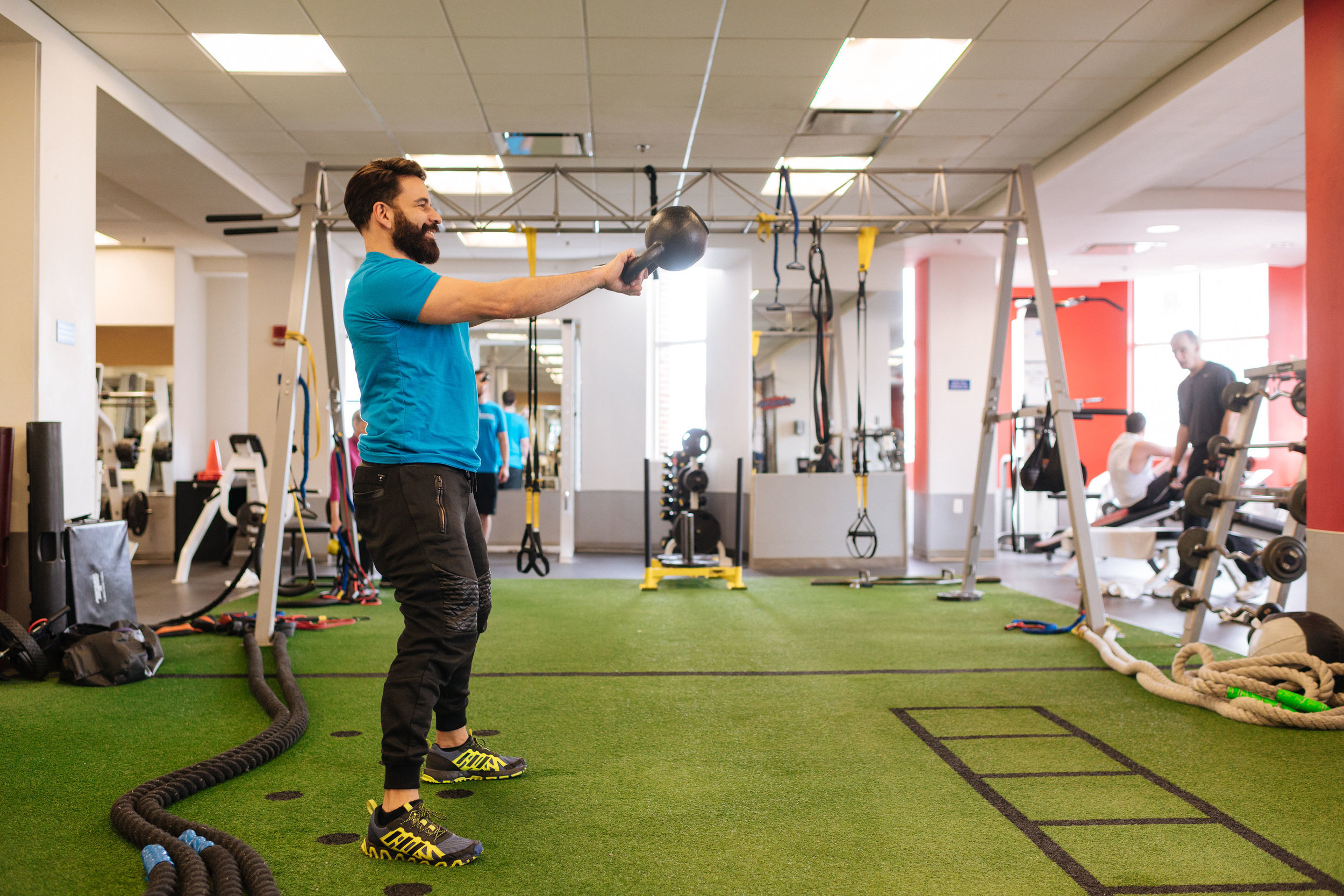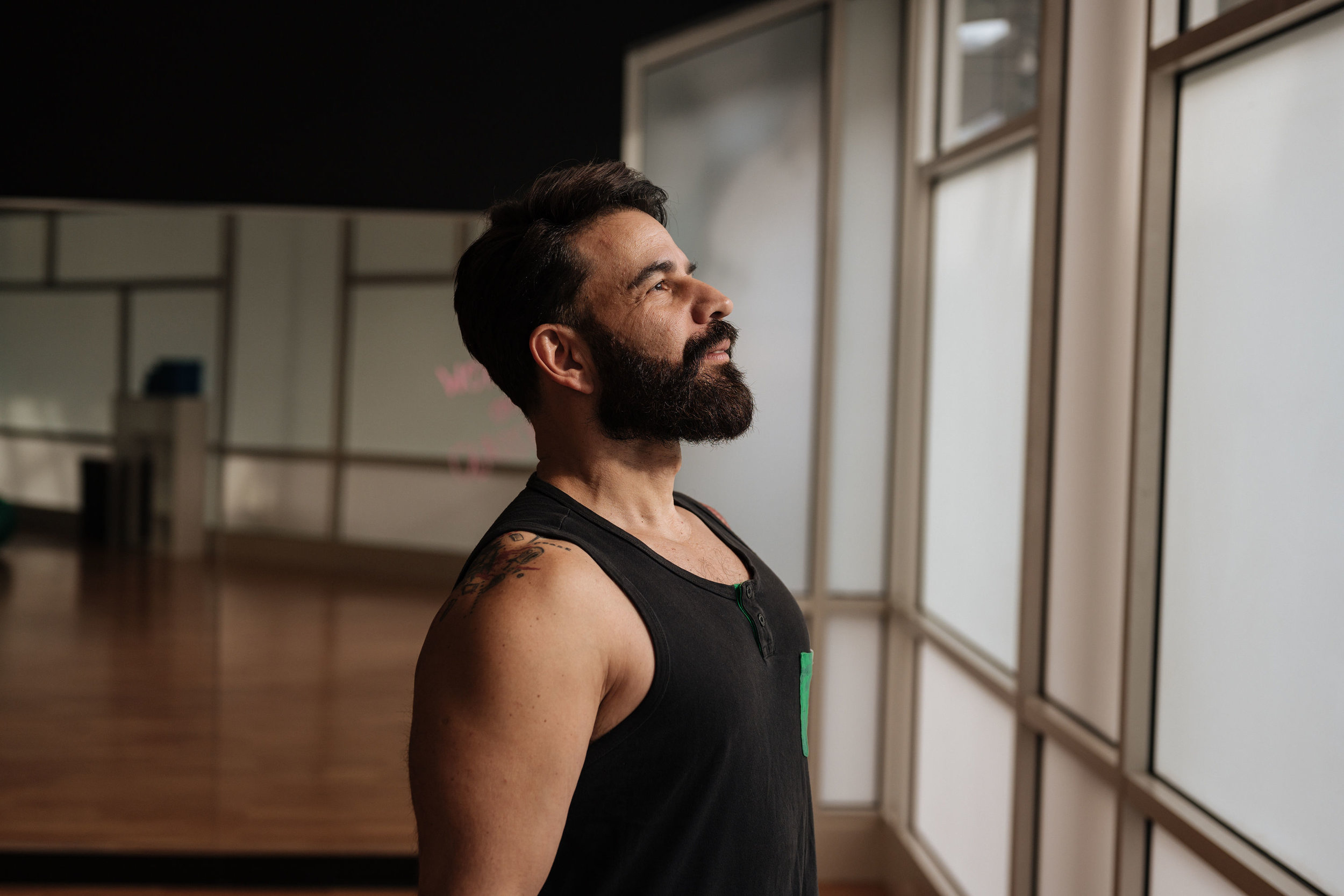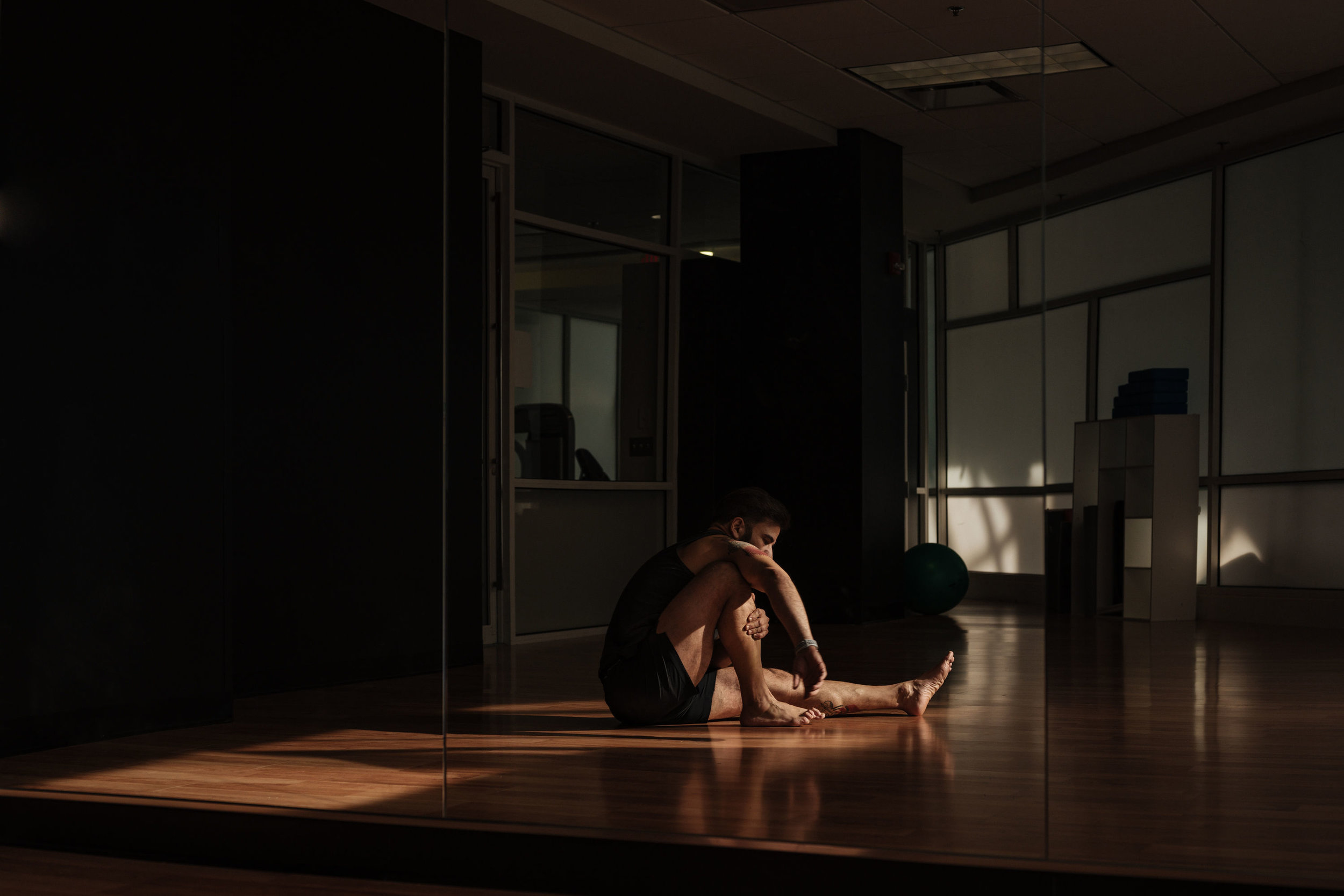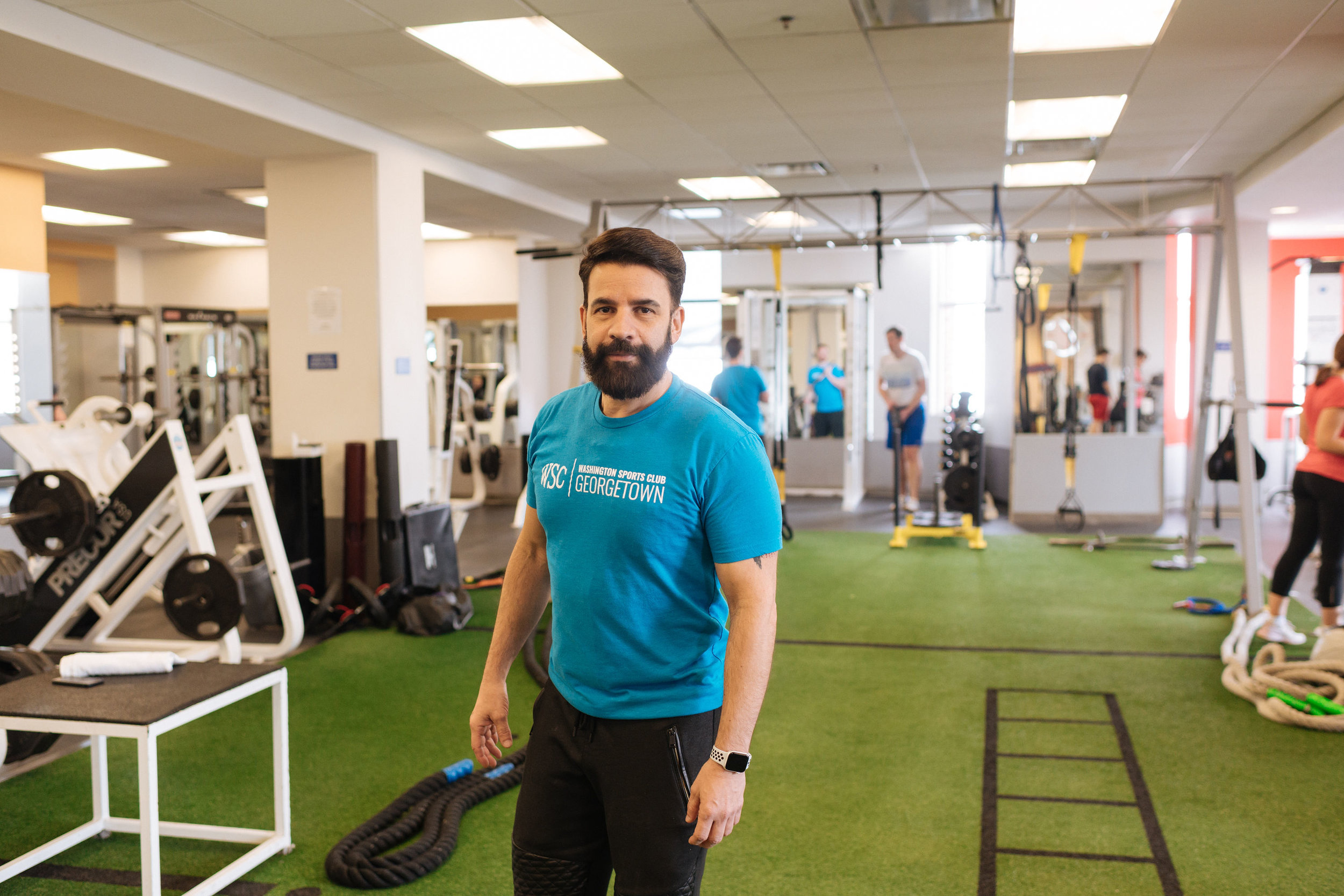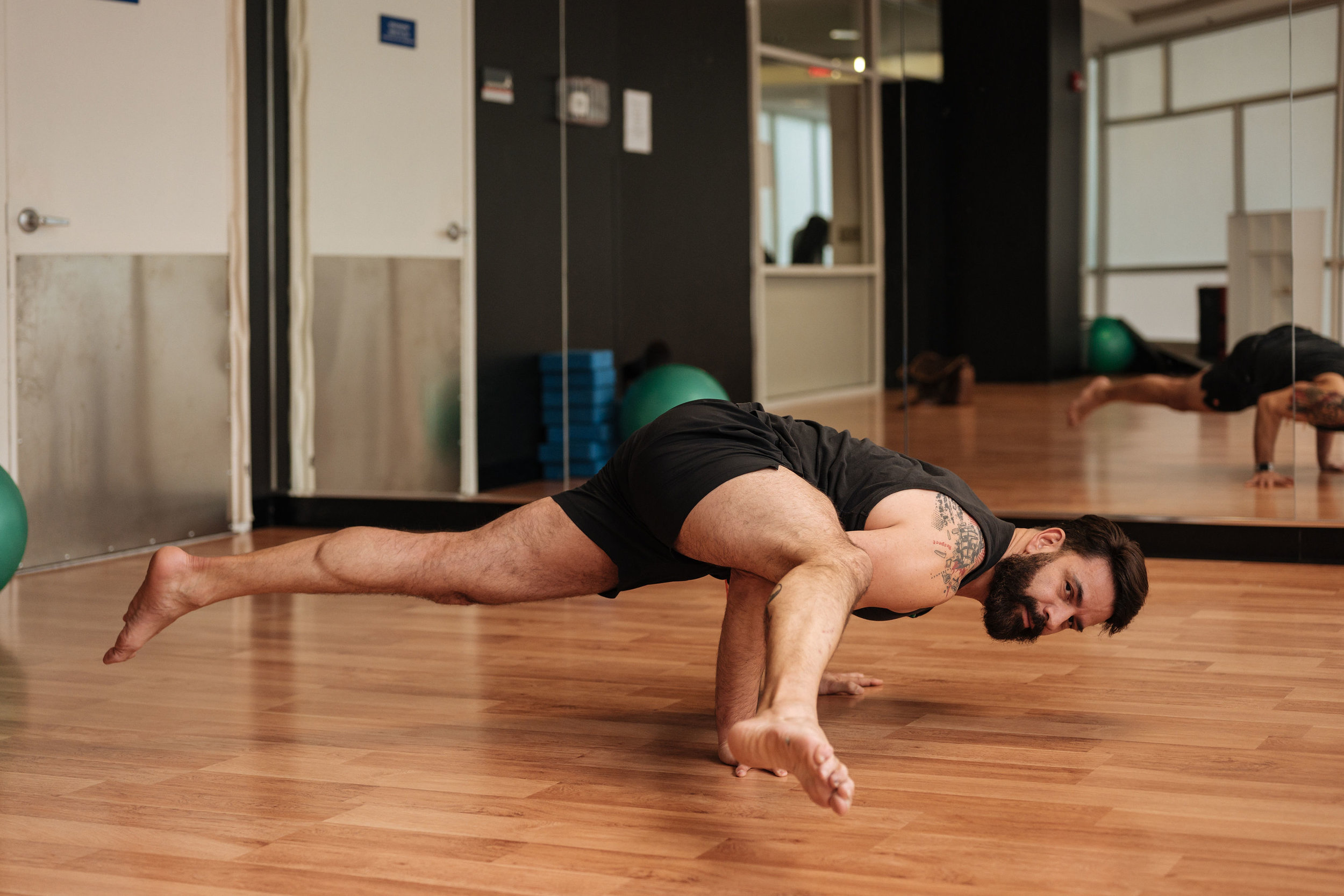‘I’m a Personal Trainer and I End Up Being a Therapist’
After nine months working at IBM, Andres Ocando couldn’t spend one more day sitting in front of a computer.
Born and raised in Venezuela, the Washington Sports Club instructor studied computer engineering, but his heart was in fitness.
‘I grew up being obese and at 15 years old, I decided I need to lose weight. I was running twice a day, then I joined the gymnastics team at my school. After that a friend of mine was working at a gym and said they were looking for an instructor. It was a good way to make extra money and keep the weight off.’
Andres immersed himself in gym culture, and became self-taught in everything from yoga to core conditioning—fitting right in with his South American peers.
‘People there are more serious about fitness. In the U.S. people go to the gym just to relax and get healthy, but over there, gym is my number one option, and my job is my second option. It’s really insane.’
His mother was another story.
‘I was doing fitness while I was going to college, and my mom didn’t know because she wanted me to focus on school. I realized engineering wasn’t for me, but up to this day she’s like, ‘You are an engineer, I can’t believe you’re doing that for a living!’’
Since 1985, he’s been doing just that. Andres moved to the U.S. 23 years ago, and became a fitness instructor and personal trainer at Washington Sports Club. He currently teaches yoga, Burn, and a core conditioning class in Georgetown, with a focus on medical exercises for the injured.
Andres’ biggest challenge is balancing what motivates each person, but he says every class is built on the music.
‘If you have high-energy music, that’s a plus for every class. Other instructors just put the music in the background to make noise. For me, I design the class with the music. And then to keep people motivated, you have to clap, yell, scream, get closer to them and tell them you’re doing a good job—all that stuff.’
Group classes offer a mental reprieve from Andres’ personal training sessions, which can be draining by the fourth or fifth client. He says people often share their personal issues, and the trainer becomes a therapist.
Those issues are as varied as the clients themselves, Andres adds. Washington Sports Club’s Georgetown location caters to a wide demographic—from 19-year-old university students to 84-year-old residents.
‘If you go in the mid-morning, you’re like, ‘Why is everybody here so old?!’ Two, three in the afternoon, it’s all early 20s. It’s very unusual.’
Today, Washington Sports Club has to compete with scores of boutique gyms and studios that specialize in a specific class or exercise. The consumer has more options, but Andres says it isn’t without concern.
‘Back in the day, for the longest time, group exercise instructors were very professional. Everybody was reading, studying, getting certifications, making sure the classes were on point. Lately [the mentality is] just because I’m good at it, I can teach it and not even have a certification. With the amount of gyms, there aren’t enough good instructors. It was way more professional before.’
Andres still takes his work seriously, but manages to do so while meeting clients where they are. He says everyone should participate in group classes at their own level, forget about competing with the rest of the gym, and take advantage of their free personal training session to establish realistic goals that make the most sense for the individual.
‘A lot of people think everyone else is looking at them and feel even more intimidated, but no one’s paying attention to you. Go do your thing, and do it gradually.’
After more than three decades of consistent exercise, Andres has found his own rhythm—preferring to work out in the late morning or early afternoon with the other (often competitive) trainers. He could go the rest of his life without sitting behind a desk again, but can’t imagine more than three days out of the gym.
‘I can miss a day, but if I miss three, then I get a little obsessed with it. Over the holidays I was visiting friends in New Jersey, and by the third day I asked one of them, ‘Can you drive me to the gym please, I need to work out right now.’ I stayed for two hours and came back to my friend’s house feeling energized. I was brand new.’
